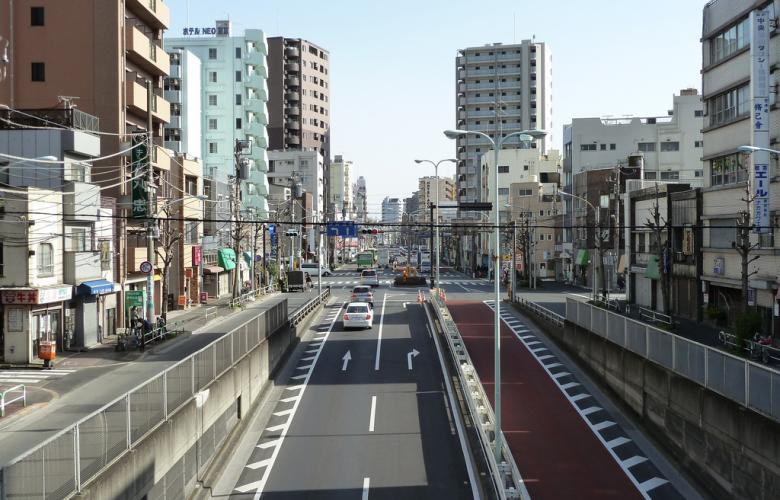Renting property in Japan
Contact
Renting property in Japan
This is intended as a guide for foreigners interested in renting property in Japan.
This article is intended as a preliminary guide only and refers to some but not all elements required to consider in detail prior to starting any property dealings or due diligence. Property dealings are often complex, especially in foreign countries and we highly recommend you seek independent professional advice... read more...
As in any country, there are a number of considerations to take into account when renting property in Japan. Renting in Japan can present some challenges for non-Japanese, even when they are fluent Japanese speakers. Real estate agencies may be reluctant to rent to foreign applicants, and they will sometimes refuse to do so outright. This can be related to fears the foreign tenants will be unable to understand the level of Japanese used, or to understand Japanese customs to do with living spaces. For instance, one key difference in Japan is that Japanese rooms are often measured by the number of tatami mats (-畳 -jō), while floor area more generally is measured by tsubo (which is equivalent to two tatami mats).
However, there are many real estate companies that do rent to foreign applicants, as well as some agencies that focus specifically on rentals for non-Japanese.
Contracts
The usual contract length in Japan is two years. If you are on a 90-day tourist visa, you will not be able to secure a long-term rental property.
Contract requirements
Your Japanese phone number, details of your domestic emergency contact (usually a Japanese person), and copies of your passport and visa are also required. It is also best if you have a Japanese bank account.
Agencies usually require three months' worth of pay slips as proof that you are able to pay the rent. Typically, rental prices are set at 30 per cent of a person's income, so you will need to show you make three times the amount your rent will cost.
The agent will also need to see a letter from your employer, or a certificate of eligibility from the immigration bureau if you are a student.
In most cases, your emergency contact will also be your character reference, but some foreign applicants also choose to have a separate character reference just in case. Again, this should be a Japanese person who is willing to attest to your trustworthiness as a tenant.
Note that in the vast majority of cases, you will be renting from a real estate agent rather than directly through a landlord.
Costs
Moving into a new property in Japan involves a number of costs, and can represent several months' worth of rent up-front. The average rent for a one-bedroom apartment in central Tokyo is around 127,000 yen (approx AU$1625) per month. Below are some of the fees you may have to pay before you move. Bear in mind that you will also need to pay for utilities and other moving expenses.
- Deposit (敷金 shikikin): this is usually equivalent to one month's rent
- Key money (礼金 reikin; literally, "gratitude money"): This is usually equal to between one and three months' rent and is not refundable.
- Agency fee (仲介手数料 chukai tesuryo): Another non-refundable amount that can be up to one and a half months' rent
- The first month's rent
- Small fees for maintenance, property insurance, and key exchange
Note that some agencies may also charge a renewal fee (更新料 kōshinryō) if you decide to renew your rental contract after each lease period ends.
Guarantors
Many agencies require renters to have a guarantor – an individual who will be liable for the rent if you are unable to make payments. Many foreigners nominate their employer as their guarantor. There are also companies that provide guarantor services to foreigners.
Real estate companies for non-Japanese
As mentioned earlier in this article, there are real estate companies that exist to help foreigners find rental accommodation, usually in the large metropolitan centres in Japan. They offer short-term leases and often waive a lot of the fees associated with renting an apartment. They also have staff who can speak languages other than Japanese. This sometimes drives the monthly cost of the apartment up, but the comparative ease of renting through these agencies makes it worth the extra cost.
Many of these companies also run "foreigner houses", which are another inexpensive accommodation option.
Other short-term rentals options
Despite initial resistance to Airbnb, Japan is also starting to relax rules for short-term home rentals in the lead-up to the Tokyo 2020 Olympics. This will help accommodate the influx of visitors for the Games, and is a good option for short-term stays in the country before that time.
Getting help
A service called Bilingual Brokerage Assistance is available to help foreigners with the rental process by acting as an interpreter between the renter and the real estate company. Read more here.
Important Information to read.
--
See also:
This article and the above linked articles are not complete and are intended as preliminary guides only. These guides refer to some elements to consider prior to starting any property dealings or due diligence. Property dealings are often complex areas, especially in foreign countries and we highly recommend you seek independent professional advice... read more...






